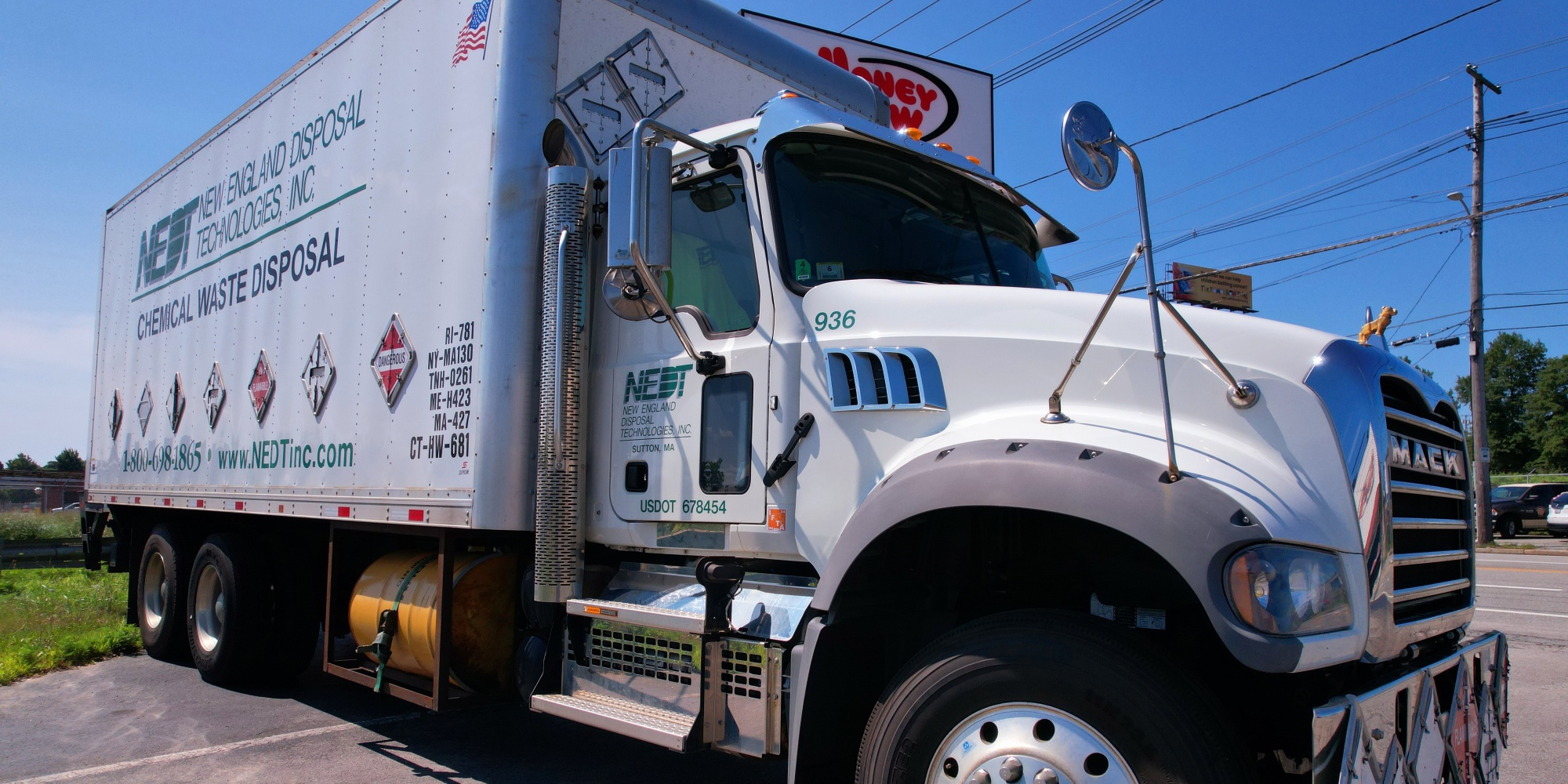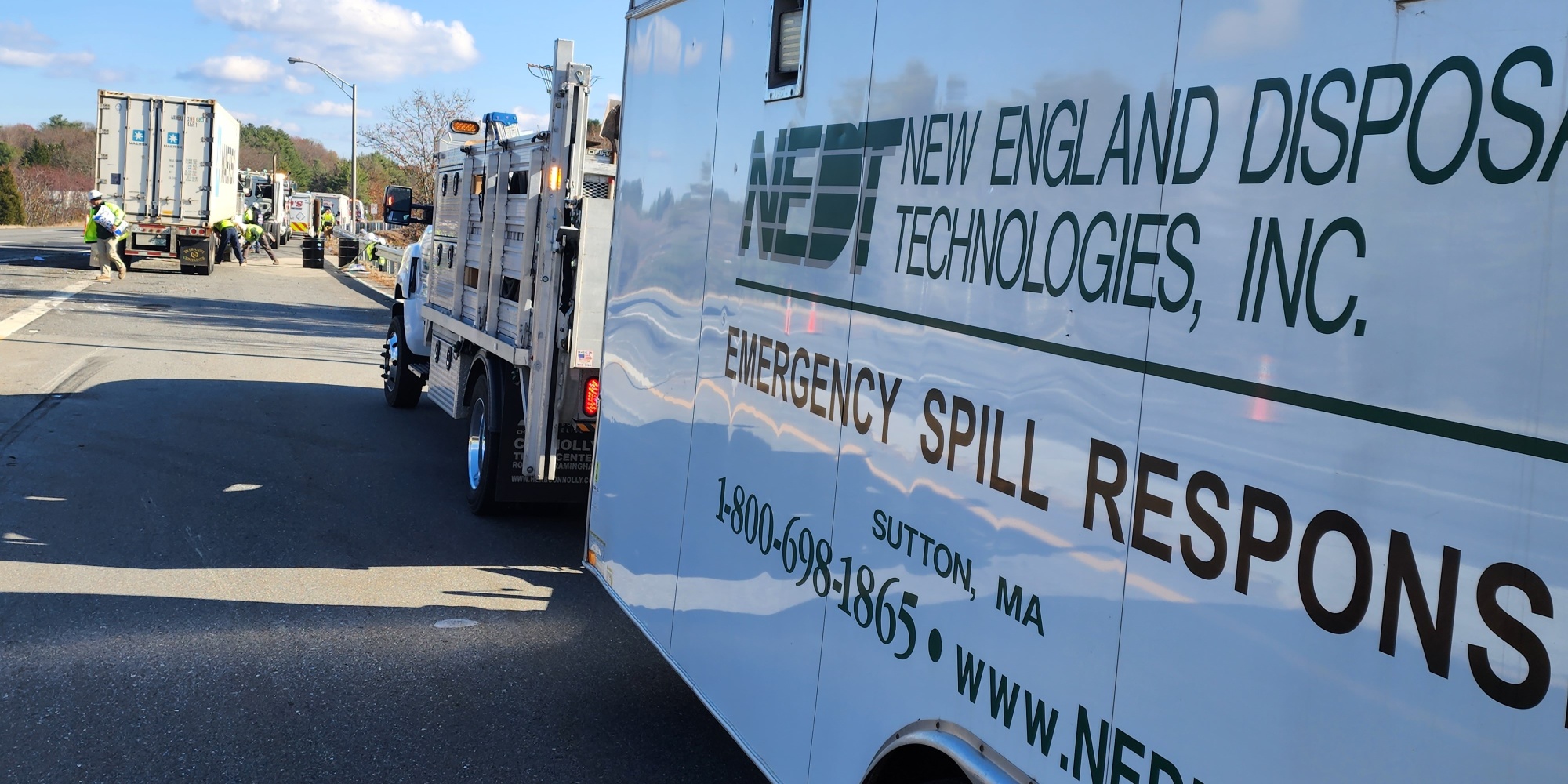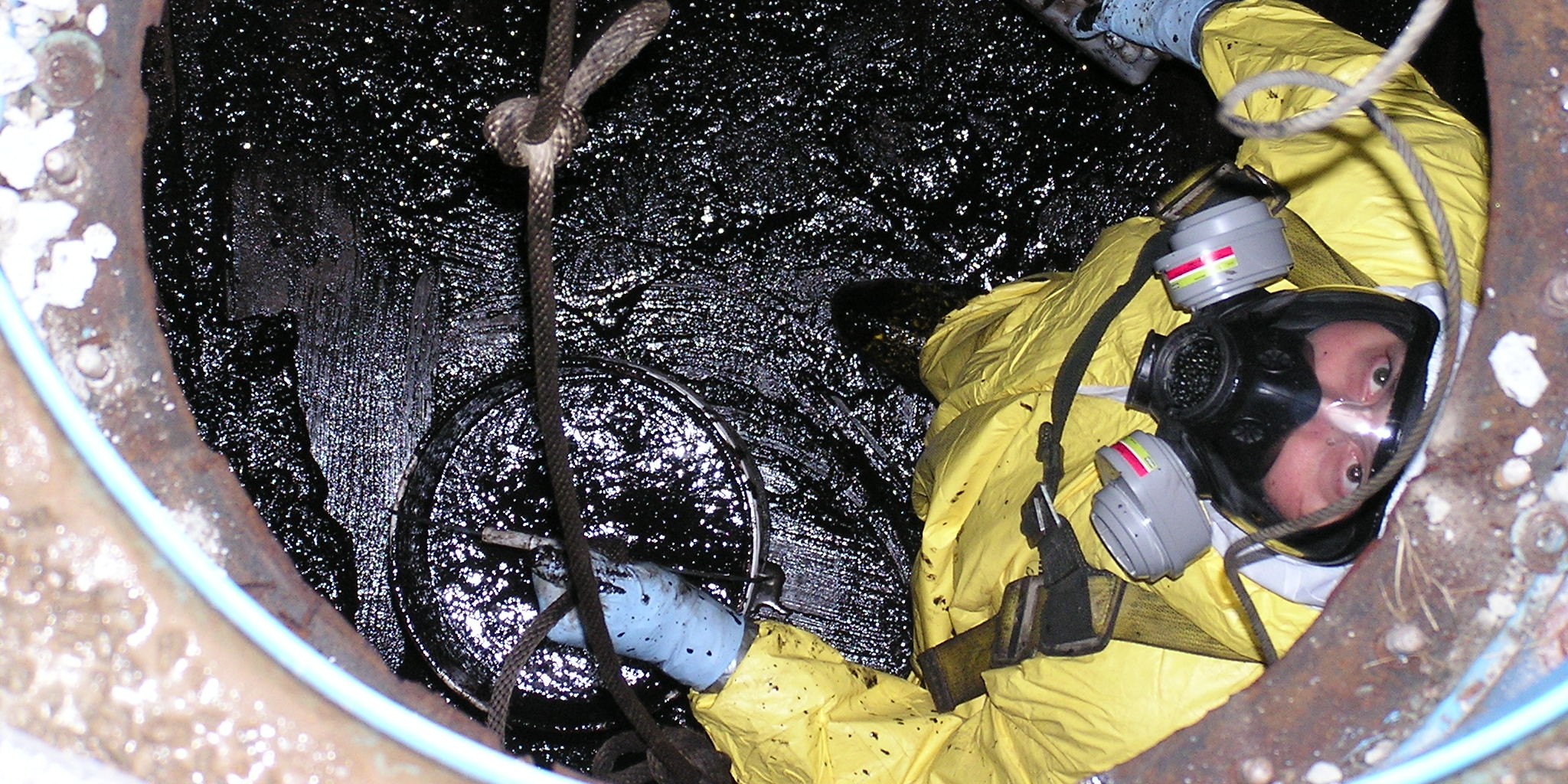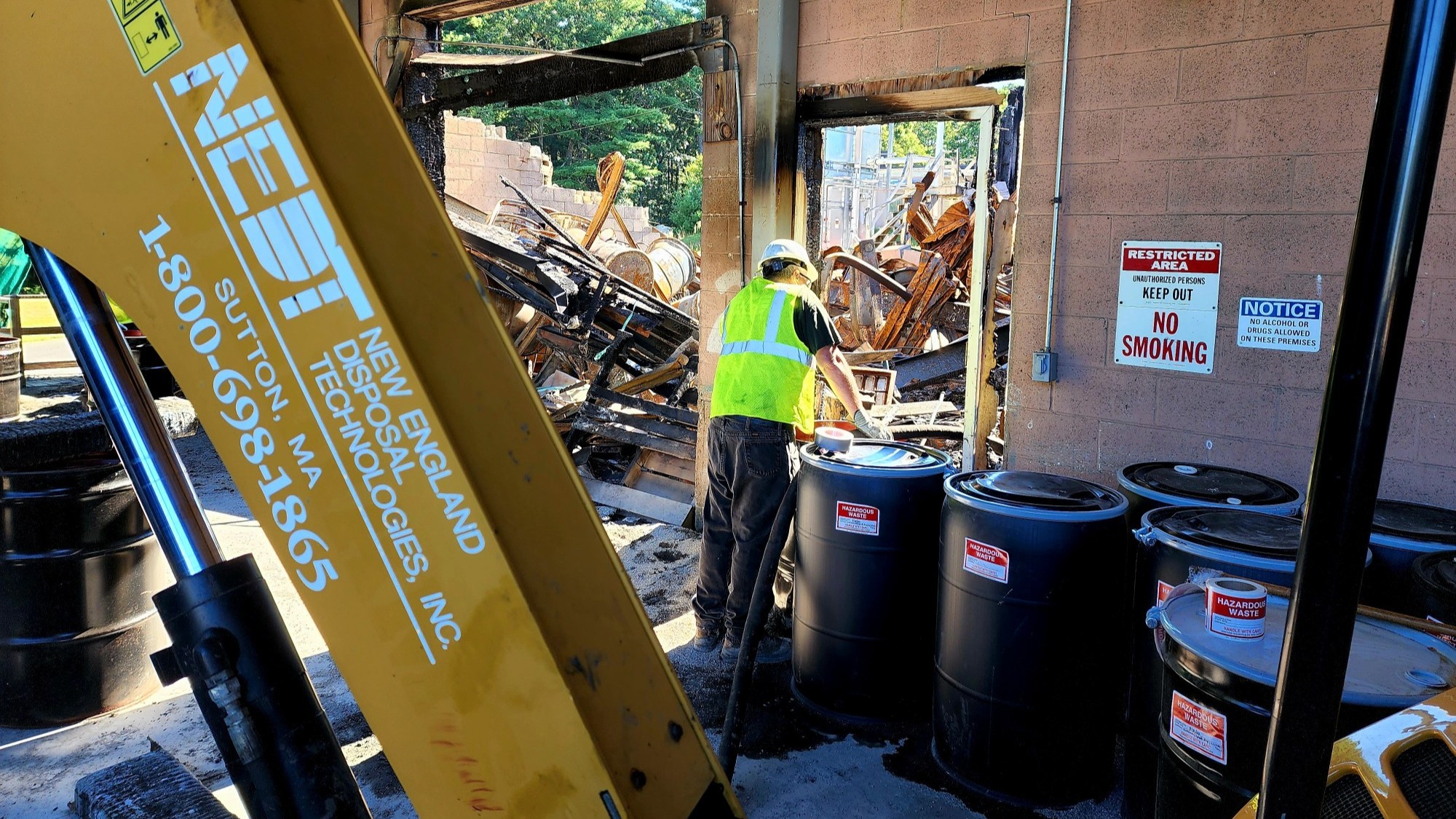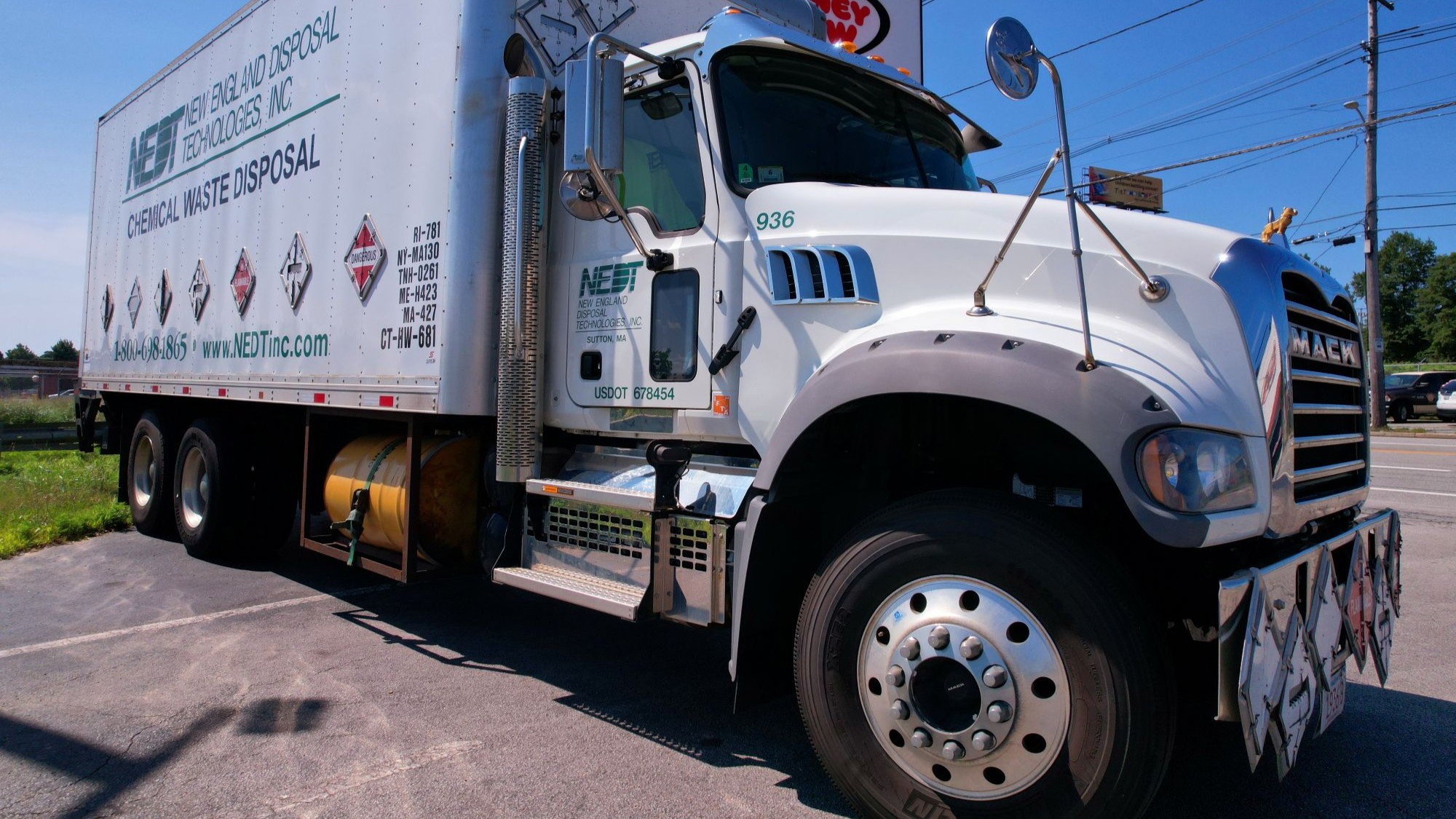Whether it’s a fuel oil spill at home or signs of a leaky tank at your business, if you suspect your property is contaminated, you need to act fast. In Massachusetts, this includes contacting the right organizations based on the size of the spill and then contracting the right specialists to assess and clean up your property. Learn the steps below and how companies like New England Disposal Technologies can help.
Contact the Right Organizations in Massachusetts
Once you’ve become aware of possible contamination at your home or business, it’s vital that you quickly contact the right organizations to assess and start containment and cleanup.
- Start with Your Fire Department: Your first point of contact should be your local fire department. In MA, certain matters are under their direct jurisdiction, such as public safety, and they will be able to provide advice on how to proceed.
- Department of Environmental Protection: If the amount of contamination exceeds certain amounts, you’re required to contact the Massachusetts Department of Environmental Protection (MassDEP). A full listing of thresholds can be found in Section 40.0300 of the Massachusetts Contingency Plan.
In the event of a major spill or emergency (such as an industrial disaster), you should contact MassDEP using the procedures specified on their Report an Environmental Emergency page. Further information can be found in the MassDEP Dealing with Contamination at Your Home or Business guide.
Hiring a Licensed Site Professional (LSP)
If your property is found to be contaminated, you are required in MA to hire a Licensed Site Professional (LSP) to determine if cleanup work is required. They will help you determine the next steps and guide you through the necessary measures and paperwork for MassDEP. LSPs are scientists and engineers licensed by the state to oversee and assess contaminated sites and will help you find contractors for required work. An LSP is just like hiring any professional service, so find the right one for your needs. Learn more and search for one on the MassDEP LSP page.
Decontamination and What to Expect
If your LSP has determined that a site cleanup is required, it’s time to get started. The LSP will recommend a course of action, and you’ll need to hire contractors to execute the remediation work. Generally, these consist of one or more actions:
- Oil Spill Decontamination: Oil and other petroleum products are among the most common sources of contamination for home and business properties. The sooner you respond to a spill, the better.
- Tank Removal: Above or below-ground tank ruptures and leaks are another common source of contamination. Once located, these tanks will need to be emptied and removed.
- Soil and Water Remediation: Contaminates in the soil or groundwater need to be removed. This may include cleaning on-site or soil or water removal.
- Site Cleanup: Depending on the root causes of contamination, the site may need to be further cleaned. This can include building deconstruction such as after a fire or industrial cleaning to remove contamination from assets.
Learn more about site remediation in our blog, What Does a Site Remediation Project Include?
NEDT is here to help. We provide everything needed to remediate contaminated properties and restore them for future use. From industrial facilities to residential homes, we have the ability to clean your property. We’ve been in business for over 25 years and have connections with the state, LSPs, and contractors to meet all your needs and get your site quickly remediated and ready for use. From hazardous waste disposal to tank removal, our fleet of vehicles and staff can make your remediation project as quick and easy as possible. Contact us today to learn more and start the process.


